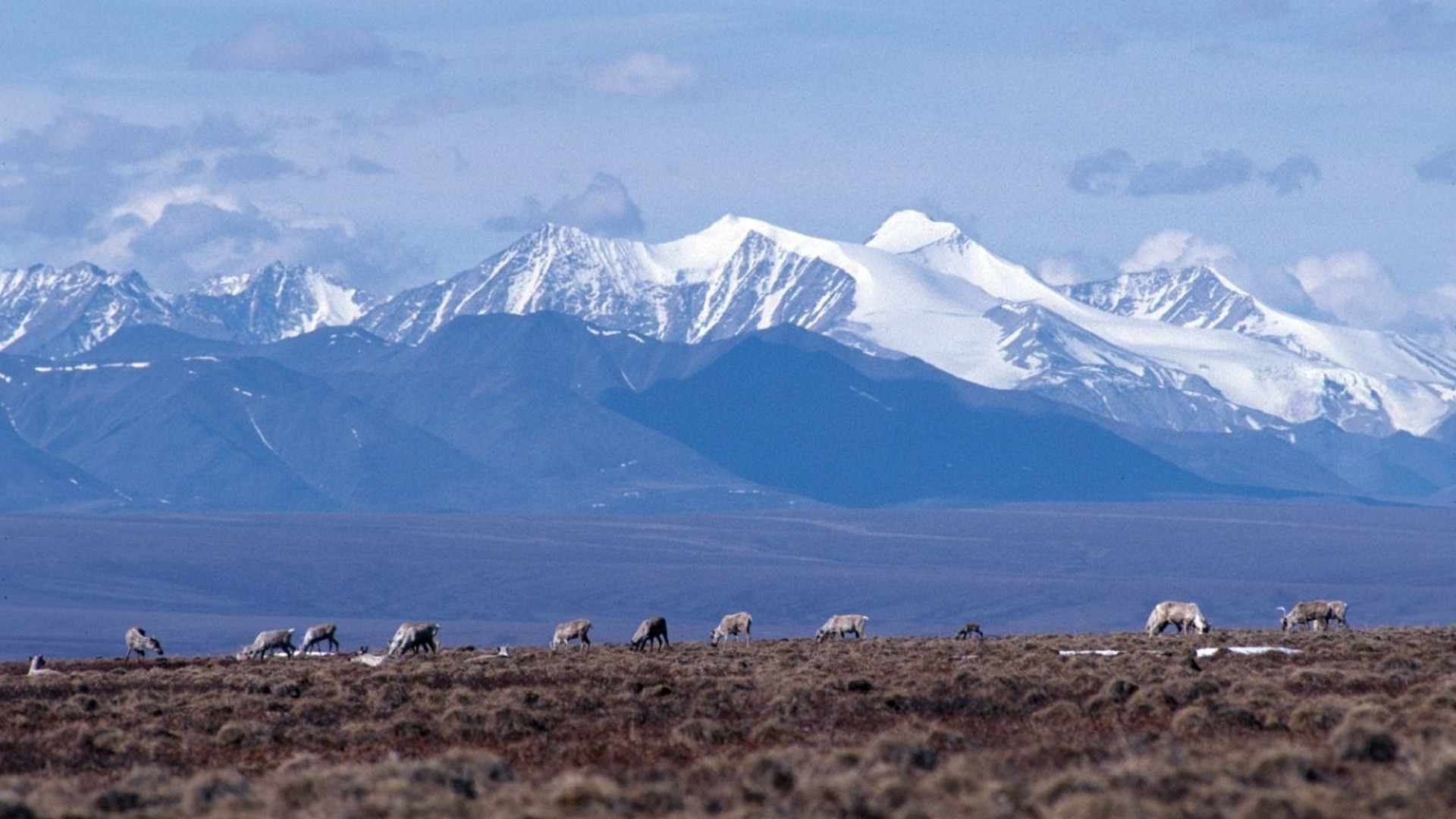Over the holidays the Republican tax bill gifted one of our most treasured national landscapes to oil companies. Against any measure of public interest, and in defiance of plausible economic reason, the new law mandates oil drilling in Alaska’s iconic Arctic National Wildlife Refuge. This is a gift to Alaskan politicians and an unneeded bonus for the world’s richest corporations. It must be reversed.
The Refuge, as many Alaskans reverentially call it, has been steadily targeted by Alaska politicians for decades. Its federal protection came in 1960, when Republican President Dwight Eisenhower formally recognized its national importance, preserving its “unique wildlife, wilderness and recreational values.”
Eisenhower was informed by even more decades of research and advocacy from some of the most prominent figures in American conservation, including Olaus Murie, Bob Marshall, Justice William O. Douglas and the indefatigable Mardy Murie. Over many years each poured passion, science and reason into ensuring future Americans — you and I — would inherit a slice of unspoiled Arctic Alaska. Congress affirmed the refuge’s national significance in 1980, enlarging it and designating much of it as federal wilderness. The move came just in time: By then most of Alaska’s coastal arctic plain was already open to drilling.
But the refuge is more than conservation legacy. Most famously, it’s the birthing grounds of the massive Porcupine caribou herd, which migrates 400 miles each spring to raise thousands of newborn calves on the area’s coastal plain, the very place Republicans just opened to drilling. Additionally, it supports Alaska’s highest concentration of denning polar bears — mothers nursing newborn cubs. It is also the locus for millions of migrating birds, arriving each spring from nearly every continent to raise the next generation of swans, terns, sandpipers, loons and eiders. In late summer these flocks disperse to backyards, beaches and wetlands across the planet. With grizzly bears, wolves, musk oxen and other species also present, many dub the refuge “America’s Serengeti.”
But it’s also critical human habitat. The Gwich’in people have lived there for millennia, calling the coastal plain Iizhik Gwats’an Gwandaii Goodlit, which translates as “the sacred place where life begins.” The Porcupine caribou are a nutritional and cultural staple, and fighting for their protection has long been a matter of cultural identity and civil rights. The new tax law is a gut-punch to the Gwich’in. It also stabs at small businesses bringing hikers, rafters, researchers and others to the refuge every year, contributing jobs and revenue to Alaska’s economy.
And then there’s climate change. Just days before Republicans passed their bill, scientists west of the refuge were double-checking their instruments, doubting an extreme spike in temperatures. But the gauges were correct, recording yet more alarming warmth in a state facing melting permafrost, disappearing sea ice, acidifying oceans and glaciers wasting away to rubble.
America doesn’t need more Arctic drilling; it needs clean energy.
So if drilling the Arctic Refuge trashes American conservation history, endangers wildlife, violates the cultural identity of local people and scoffs at the notion of catastrophic climate change, why did Republicans do this?
A main goal, it seems, was securing tax plan support from Alaska Senator Lisa Murkowski, who attached refuge drilling to the bill. Murkowski had already demonstrated her potential for disrupting Trump’s legislative agenda by voting against health-care repeal, and Republicans were not about to mess with her. For their part, Murkowski and other Alaska politicians have long obsessed over drilling in the refuge. One reason, as recently described by Philip Wight in Yale Environment 360, is that refuge oil could decrease operating costs and extend the life of the Trans-Alaska Pipeline, a gift to oil companies. Depending on upcoming discoveries, it may also boost the state’s oil-rigged economy.
But do we really need to destroy a prized national wildlife refuge so Alaska can go after more oil? Keep in mind that oil has eliminated the need for Alaska sales and income taxes, and that every woman, child and man here still receives an annual oil dividend check, which typically exceeded $1,000 before recent cuts. Also remember that U.S. oil production is soaring — we are not desperate for new sources.
Murkowski knows drilling the Arctic National Wildlife Refuge is unpopular. That’s why she slipped it into the tax law, with the bogus promise that it will send $1 billion to the U.S. Treasury and help cover tax cut costs. It’s a preposterous claim, first because no one knows how much oil lies beneath the refuge, and second because $1 billion covers only a sliver of the $1.5 trillion tax cut. Even that $1 billion number is in question, as a sale of other Alaskan oil and gas leases last month netted less than 1 percent of expected bids at far lower prices than expected.
And please don’t buy Murkowski’s claim that drilling would only affect 2,000 acres of the refuge. The figure imagines a line tightly drawn around every road, pipeline and oil rig necessary for drilling. In reality, a toxic spider web of infrastructure would lace the refuge’s coastal plan, as it currently does nearby Prudhoe Bay, where oil spills are common.
What happens next is uncertain. Watch for Murkowski to press for fast action from oil companies to secure their presence and de facto ownership of refuge lands. Concerned citizens should tune into the hard-working folks at Trustees for Alaska, the Alaska Wilderness League, The Wilderness Society and others who have fought for generations to protect the refuge. Their lawsuits or other actions will be the place’s last defense. We can also hope for continued low oil prices, surging renewables and growing divestment from fossil fuel companies, which might discourage bidding on upcoming refuge leases. And in 2018 we must change the balance of power in Washington, where Republican attacks on public lands are only beginning.
© 2018 Tim Lydon. All rights reserved.
The opinions expressed above are those of the author and do not necessarily reflect those of The Revelator, the Center for Biological Diversity or their employees.



Left unsaid is the pollution drilling in the refuge would bring to this pristine wilderness. When all the oil is slurped out of the earth and the coastal plain is abandoned by the oil companies, what is left? — a wasted land forever spoiled by oil and dwindling populations and, perhaps, extinctions of world birds, sea ice mammals, cold-loving wildlife — perhaps the caribou herd itself. What a price to pay for one congresswoman’s greed.